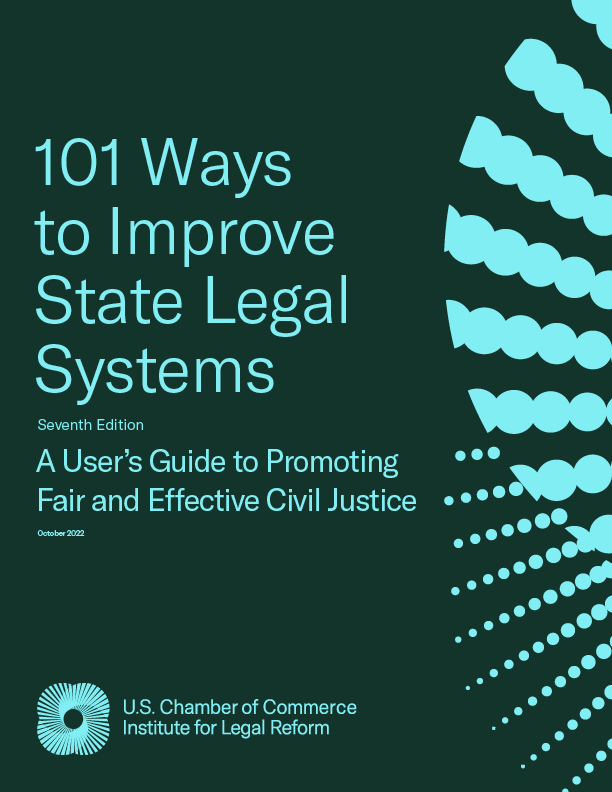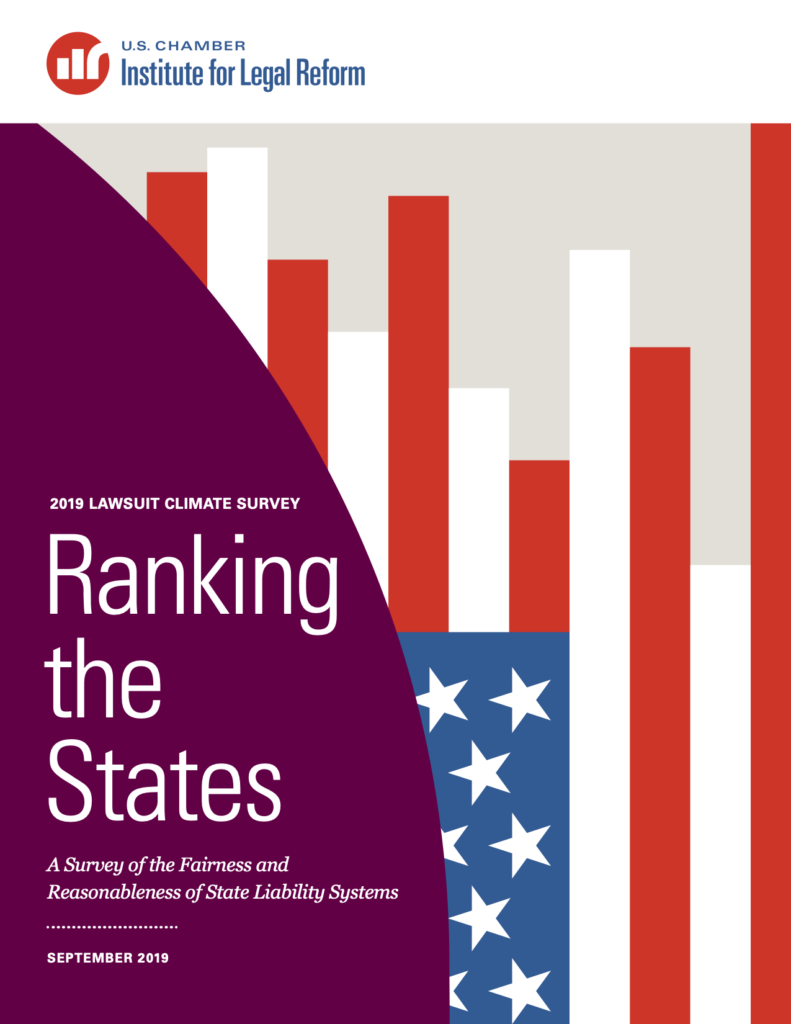For years, the Mountain State languished near the bottom of ILR’s lawsuit climate survey, with respondents consistently ranking West Virginia in 49th or 50th place in surveys from 2002 to 2015. But beginning in 2015, West Virginia undertook a legal reform campaign that overcame many challenges, bumping the state up several places to 45th in ILR’s 2017 Lawsuit Climate Survey and signaling the start of a long-awaited turnaround. West Virginia’s Climb highlights that the state’s multi-year commitment to legal reform brought many of its laws into the mainstream, including:
- Making sure each party pays its fair share when more than one is at fault.
- Making sure doctors are held responsible for telling patients about the benefits and side effects of drugs if the manufacturer has given them the full story about it.
- Ensuring that punitive damages awards are tied to actual harm.
- Making sure judgments in state courts don’t rack up over-the-top interest.
The state also passed laws:
- Combatting “double dip” asbestos lawsuits where lawyers fraudulently file claims against multiple asbestos trusts and in the tort system.
- Putting into law the attorney general’s “sunshine” policy promoting transparency and limiting how much lawyers make when the AG hires outside lawyers to represent West Virginia.
While these are all important and positive changes, much remains to be done. ILR’s research concludes by recommending additional reforms to move West Virginia further in the right direction, including the creation of an intermediate appellate court, cutting down on forum shopping, and protecting consumers from misleading lawsuit advertising.


